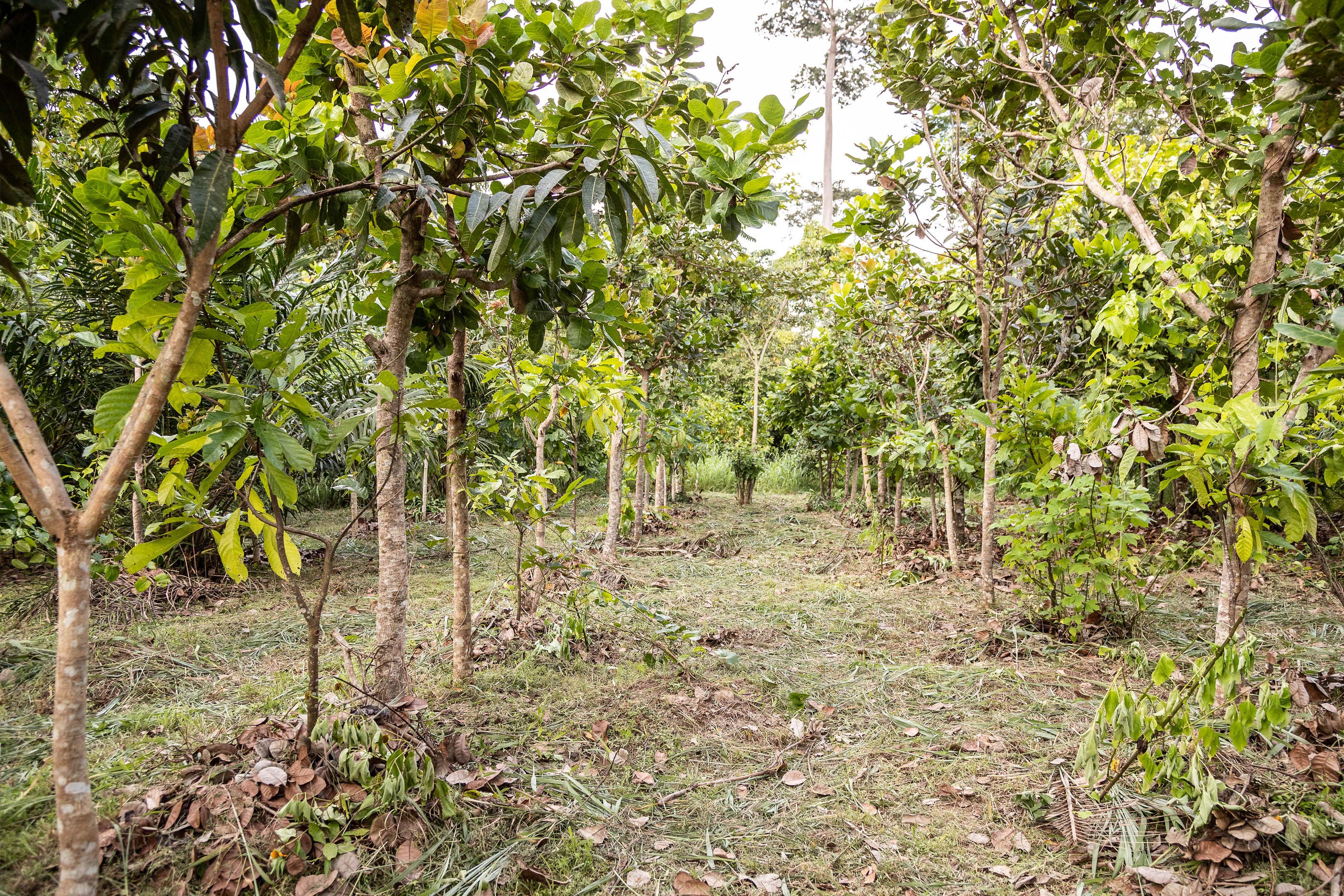Cocoa producers trial new farming scheme to save chocolate from climate change
The ‘agroforestry’ project in Ghana aims to protect cocoa crops against climate impacts and provide added income for farmers.

Chocolate is under threat from climate change, but farmers in Ghana are trialling an innovative “agroforestry” scheme to protect cocoa crops from its impacts.
The “Sankofa” project in the Ahafo region of the West African country involves planting cocoa seedlings among shade and fruit trees and other crops to produce a healthy microclimate and added income for farmers.
Ghana is a major cocoa producer, but farmers in the country say yields have fallen in recent years, in some cases by more than half, hit by scorching heat, drought, erratic rains and increased pests due to climate change.
That has squeezed their incomes just as the cost-of-living crisis has pushed up prices of everything from food to land.
Ahead of the UN Cop27 climate talks in Egypt, Fairtrade campaigners warn that without moves to support farmers with finance, fair prices and action on global warming, their future – and that of chocolate – is in doubt.
In Ghana, the Sankofa project, which means “going back”, and is a switch from conventional chemical-using monoculture cocoa farming to a more traditional approach, aims to help farmers cope with the changing climate around them.
The “dynamic agroforestry” approach plants new cocoa seedlings among fast-growing timber trees that provide a top layer of canopy to protect the shade-loving cocoa from the sun and heat, and species such as avocado, plantain and oranges to provide other sources of income.
Crops including yam, cassava, nitrogen-fixing mucuna beans, tomatoes and chillies also grow in between the lines of cocoa, and “biomass” trees are planted so branches can be cut for natural mulch in an organic system that avoids artificial fertilisers and pesticides.
The approach provides alternative plants for pests to feed on and supports insects needed to pollinate the cocoa.
It also helps the climate fight by avoiding slash-and-burn agriculture and storing carbon in the trees.
The process has been developed by Fairtrade Africa, the International Trade Centre (ITC), Swiss chocolate company Halba and other partners, and delivered through KKFU, a farming co-operative which produces 10% of Ghana’s cocoa, and there are now nearly 400 farmers implementing it.
Cocoa trees take three to five years to start fruiting and the scheme is only beginning to deliver the first beans, but already farmers say they are seeing benefits.
One of the first farmers to sign up, John Kwabena Narh, said he was determined to try it following some fruitless years on his farm.
He has planted up new plots in the dynamic agroforestry approach and has rolled out some of the principles, including shade trees and cutting out chemicals, across his whole farm.
Benefits include far more seedlings surviving their first year than on a conventional farm, fewer pests on his cocoa, less money spent on chemicals – and on medical bills due to sickness caused by using pesticides.
His farm is also alive with pollinators such as butterflies.
“Based on the advantages I have derived from the project, I would love for other farmers to get the same benefits,” he said.
“When I started off, people thought I was crazy for adopting this approach but now they want to join.”
Neighbouring farmer Emelia Debrah has maximised production on her land with other crops, saving her money on buying food and providing an added income.
There are also savings on labour costs, fertilisers and pesticides, and hospital bills, allowing her to pay the fees and food for her one child and six grandchildren who are still at school.
“Because I’m able to make savings on the farm, I can afford all these things, I don’t have to borrow money. I don’t go to bed with a lot of pressure on my mind because I’m owing money,” she said.
It’s not just farmers losing their livelihood, it’s the chocolate, the coffee, the fruit, everything you want to take every day, is going
Sadick Kwaku Abanga became involved when he saw his neighbour Lucy Twenewaa transform a “terrible, waterlogged” patch of land into a “really beautiful farm” after she joined the project.
He has been able to convert a patch of rocky, sunbaked hillside into a successful dynamic agroforestry plot.
He employs techniques such as “banana irrigation”, placing banana or plantain stems around the base of the cocoa to release moisture over a long period, and says the shade trees protect seedlings and make it easier to work on the farm.
The benefits allow him to plan for the future, and he said: “With planting of trees and introducing adaptation and mitigation measures, I’m very confident I can thrive in the face of the changing climate.”
Fairtrade youth advocate and cocoa farmer Deborah Osei-Mensah, who is going to Cop27, warned climate change was an issue of global food security, and if cocoa did not give farmers the livelihood they needed, they would change to other sources of income.
“Everybody is losing, it’s not just farmers losing their livelihood, it’s the chocolate, the coffee, the fruit, everything you want to take every day, is going, so it is better to save their livelihoods,” she said.
She called for farmers to receive fair prices for their cocoa to help them invest in a sustainable future, as well as finance for programmes that help them cope with global warming, and for action on climate change from world leaders.
Bookmark popover
Removed from bookmarks